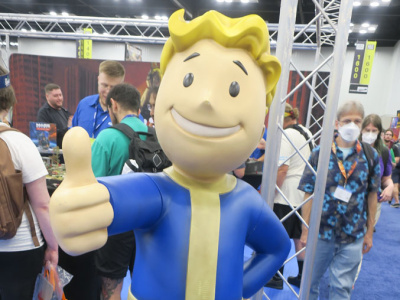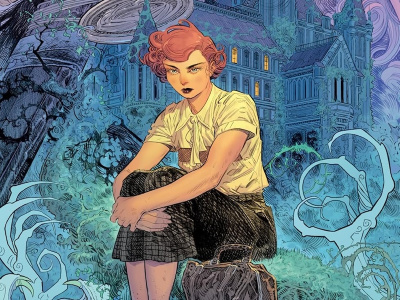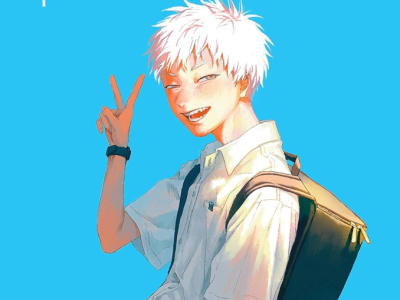Confessions of a Comic Book Guy is a weekly column by retailer Steve Bennett of Super-Fly Comics and Games in
While waiting for the Sci-Fi Channel to finally air this season’s final episodes of Doctor Who I found a piece on The Guardian Website about the program and was impressed by how it manages to appeal to the widest possible audience in
Most episodes of Doctor Who are “stand-alones” (though viewers who pay particular attention can spot clues and hints of what’s to come) but each season has an overall arc which builds until it reaches an epic conclusion. In short it’s everything I’d like American superhero comic books to be. As to why they aren’t, I think Executive Producer Russell T. Davies gets it about right with this comment:
"I think we're an unusual science-fiction franchise in taking a very big step back from fandom and having nothing to do with them... Every program on the BBC has a message board on the Website. I forbid it to happen on Doctor Who. I'm sorry to say this, all the science fiction producers making stuff in
Clearly Marvel and DC don’t want to take the risk, but I definitely think they could make (at least some of their) comics appeal to a larger audience without alienating the ones they have now. But then I continue to hold to the radical notion that there should be at least one Superman comic book that provides an actual adventure of Superman, not just a fraction of one that’s continued in Action, Supergirl, etc.
I know comic fans have seen it all, heard it all but here’s a suggestion: to excite comic book fans, publishers need to make their comics more exciting. I frequently get the impression modern superhero comics are being created with the brake on, the idea being to make as little as possible happen in each individual issue to delay reader gratification for as long as possible. Take for example DC’s new weekly series Trinity. You’d think a lot would happen over the course of four weeks of a weekly comic, but I’ve read them and that’s not the case. There’s nothing exactly wrong with it; it’s a perfectly OK superhero comic book, but no more than that. But what is worse is it really doesn’t do much with its weekly format, it’s just a monthly being published on a weekly basis. Sure the lead story is continued from issue to issue, but everything takes place at such a leisurely pace that there’s nothing compelling enough taking place to make the reader really look forward to the next issue.
If DC wants to hear an example of a genuinely thrilling serial featuring a superhero they should go and visit their archives and listen to episodes of The Adventures of Superman radio show from the 1940s. In its 15-minute running time it managed to recap what happened yesterday, further the story along and put the characters in enough jeopardy to make you want to tune in tomorrow to see what happens (plus working in a couple of commercials for Kellogg’s Pep, “the super delicious cereal”).
I’ve abstained from commenting on the recent Tokyopop business because I believe it’s been covered adequately enough in other venues, but as someone who’s reviewed more than their fair share of manga for the Comics Buyer’s Guide I feel qualified to add at least one thing to the discussion. Sure the company over-saturated the market with product to an alarming degree (there’s only so much manga anyone can read, let alone buy) but their main problem was a lot of it just wasn’t that good.
Now that could just be my personal opinion (and it is) but that’s also my judgment of them as product. The majority of the volumes they published were professional enough but they mostly were just barely acceptable imitations of manga series already published in
If you’ve read the report from the Anime Expo in this week’s issue of Publisher Weekly Comic Week you know the other American manga publishers are appropriately worried but all seem to have found the strategy most likely to succeed: pick your titles carefully, grow slow and publish different genres of manga for different audiences.
The opinions expressed in this Talk Back column are solely those of the writer, and do not necessarily reflect the views of the editorial staff of ICv2.com.







